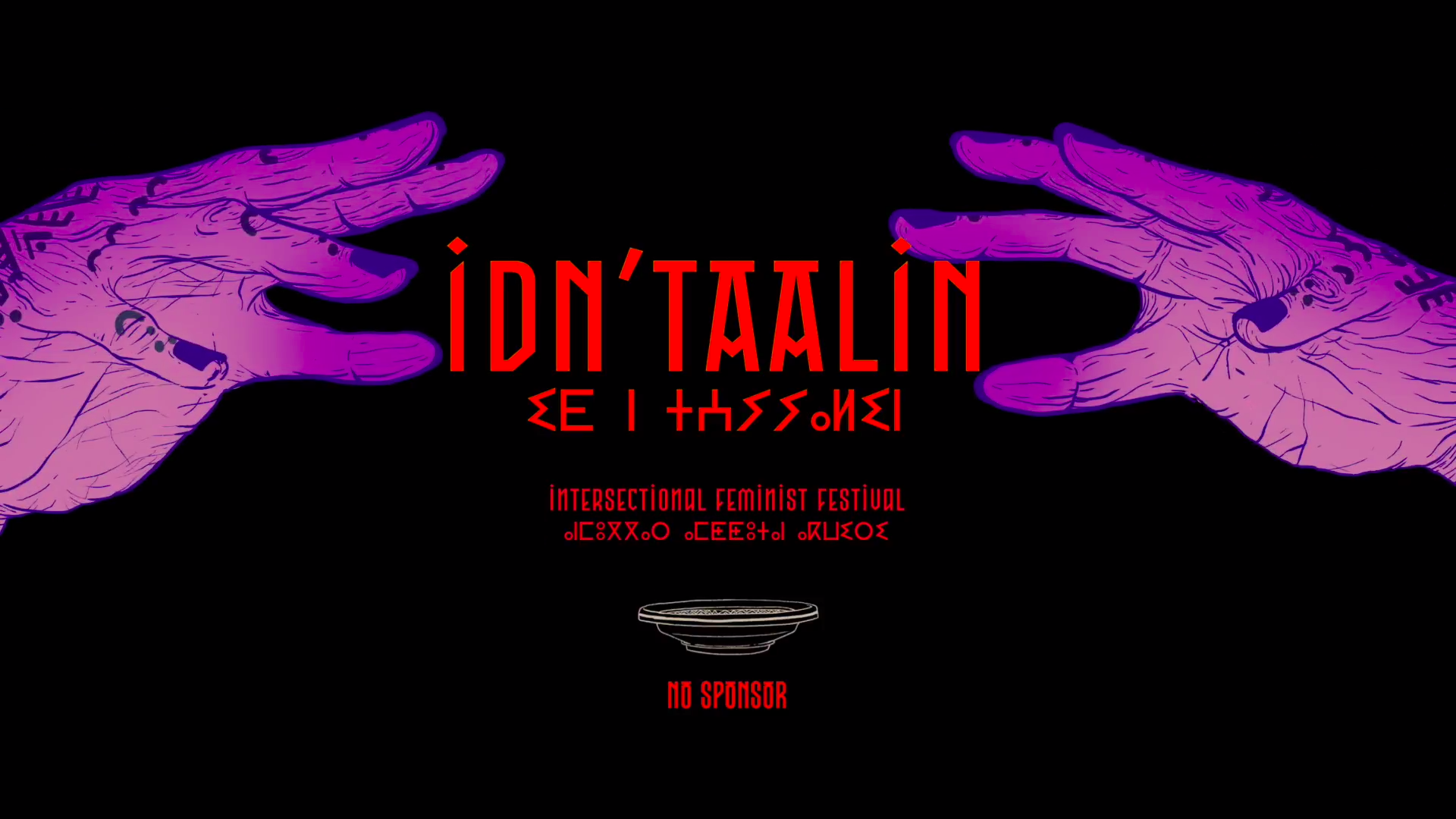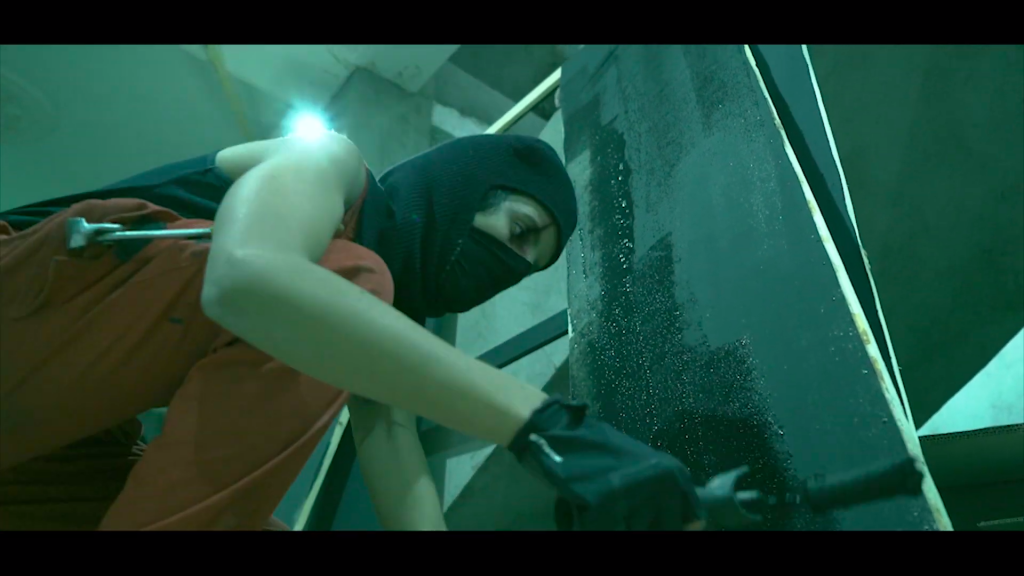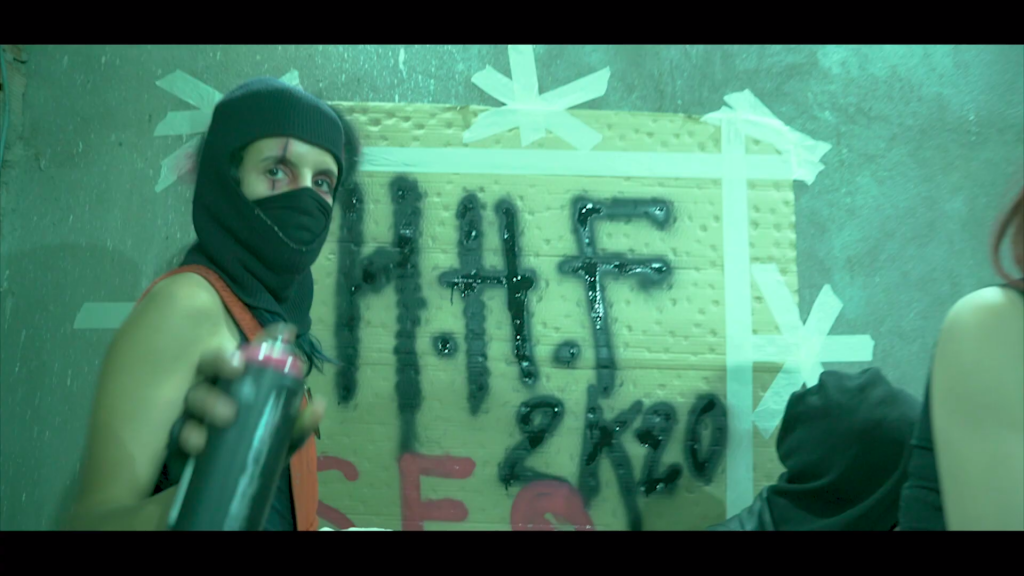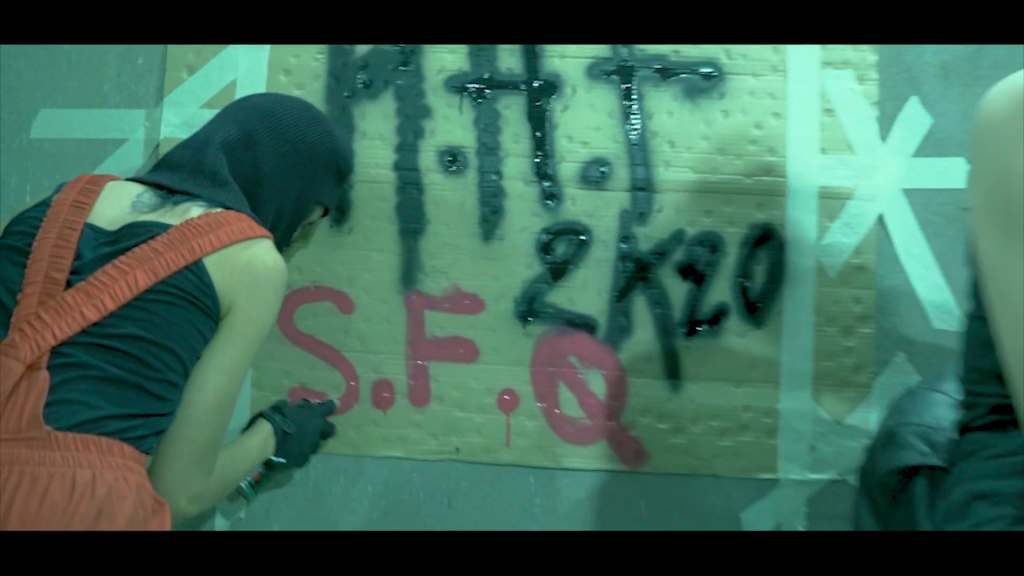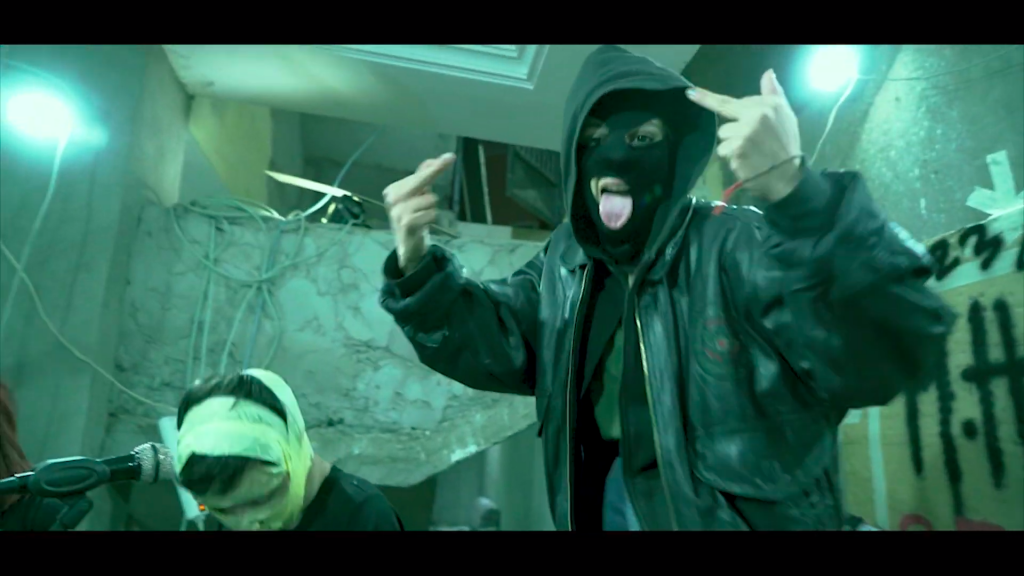IDN’TAALIN INTERSECTIONAL FEMINIST FESTIVAL
From Tamzgha , North Africa
The Idn’Taalin Intersectional Feminist Festival, unique and unprecedented in Maghreb, is the first local event being lead by a team of women and queer people. Right after our article dedicated to the Hardzazat Festival (see Karton n°3), we go back to Morocco to meet an impressive collective; therefore opening a way left unexplored until today. By Polka B. | Translated by Julie B.
How did the idea of your festival emerge ? What are your objectives ?
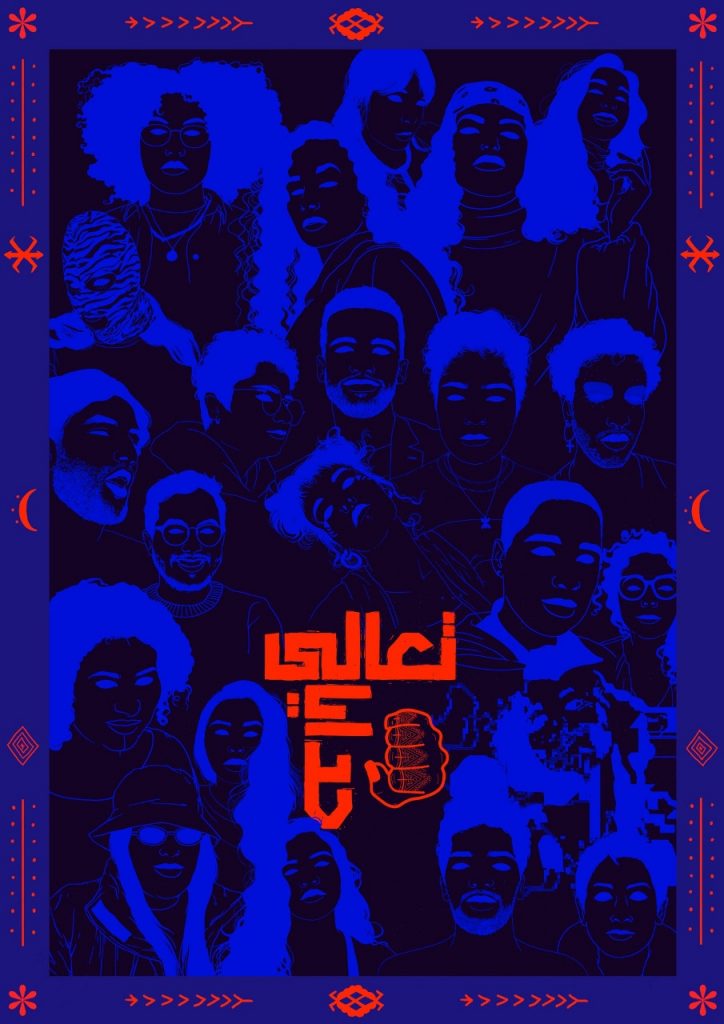
After the evolution of the queer feminist section inside the Hardzazat Hardcore Fest during the past three years, we decided to create an autonomous festival. The basic idea was to develop all the principles that were theorised by the Hardzazat section, to make the section independent from the original collective, and to create an autonomous and delocalised festival outside Ouarzazate. IDN’TAALIN was also born to alleviate the lack of non-mixt spaces, and to contribute to the rising of a network of women and queer artists in Morocco.
The festival’s main goal is to reinforce this presence in the cultural environment, while promoting the feminine artistic stage. It’s also creating an atmosphere of mutual support between woman/queer people in order to emancipate their creative side and to support the fight against gender-based discriminations, such as transphobia, and also intersectionnally rejoining other fights, such as against homophobia.
The objective is not to make a Woman and Queer version of Hardzazat, but rather to make a full blown festival with artists, projections, and new workshops.
Can you tell us more about the Souss tradition, that you name is inspired by ?
Idn’tayalin (an amazigh word meaning « Night of Women »), is a ritual inherited by the amazigh women. Even though it has started to disappear, it’s still persisting in some areas in Souss, in Aulouse and other regions. This event takes place every year and gathers all the assigned women from the nearby villages and native tribes. From young girls to older women, everybody parties during the whole night, singing, dancing, cooking food and talking about their experiences. They also read poems that they wrote. They gather to create a space that we would today call ‘non-mixity’, a space that tends to be ‘safe’, and where all women can express themselves freely, far away from their daily lives that are restricted by the patriarchy, and far away from the prejudices of the tribes (divorced, whore, witch…) ; This is a night where they are freed from their husband’s restrictions, and from their daily assigned tasks.
We picked the name IDN’TAALIN as a tribute to this tradition, coming from our amazigh culture, which is deeply feminist to us but has been forgotten by the urban areas, and is now also slowly dying even in its region of origin.
The main goal of this ceremony is to create a space of solidarity, of sorority, of strength, for all the women present. We feel like these space-times allow all those who suffer from oppression to rediscover their strengths, to feel quite freer with their bodies and their voices, and to express themselves openly regarding the oppressions that they live through in order to feel more reassured and/or to face these oppressions.
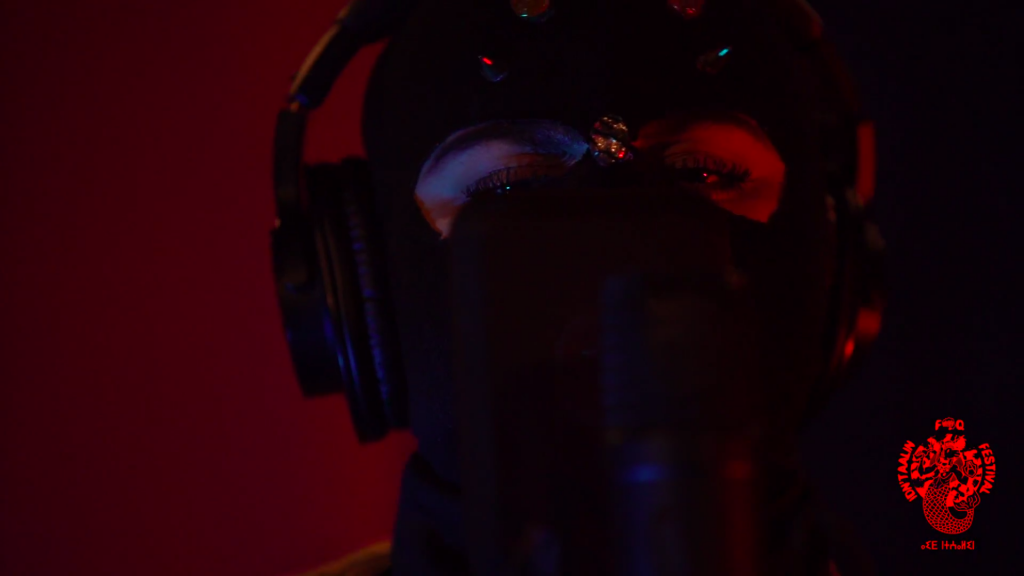
In the long run, is the objective to settle in Ouarzazate ?
Not at all. The Hardzazat Festival was born in Ouarzazate, and it has remained there until today, and we think it’s important that it does. People get used to it, and Ouarzazate needs it. But we’d like IDN’TAALIN to be nomadic. As women and queer people, we’ve gone through a phase where we struggled to travel far (or to just travel, actually) because of our families. So we’d like to be more accessible to women and queer people, and have a decentralised festival, because we already know that living in big cities offers a lot of opportunities to spend a good time in a festival.
And it’s also a challenge we’d like to take up, since all the editions will have their specificity depending on the place. And we like being nomadic ! After all, we do this for passion… .

What does it mean to be queer in a country like Morocco ? Can the deconstruction of the masculine hegemony be addressed in the same ways it is addressed in Europe ?
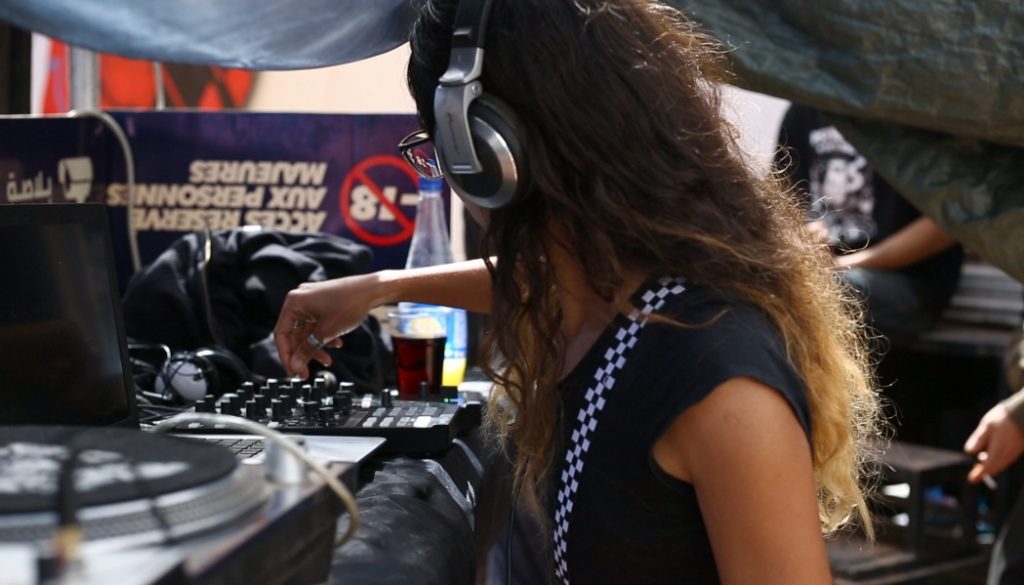
Juridically, the article 489 of the Moroccan penal code (laws established by the French « protectorate ») states that homosexual relationships are criminalised :
« Is punished by imprisonment from six month to three years, and a 200 to 1.000 dirhams fine, understood that the fact does not constitute a more serious infraction, whoever commits an indecent or unnatural act with a same-sex individual ».
The article 483 even criminalizes gender non-conforming expressions, using vague terms that can lead to legal proceeding depending on the interpretation, and therefore on the state agent’s judgement. The article states :
« Anyone who, by an act of voluntary nudity or by obscene gestures or acts, commits public outrage to decency, will be sentenced to one month to two years of imprisonment, and a fine of 200 to 500 dirhams.
The outrage is considered public as soon as the infraction happens in front of one or several involuntary witnesses, minors, or when it takes place in a public space ».
Therefore, it is difficult for trans and non-binary people to have access to justice in case of agression, or to ask for services concerning their hormonal and/or medical transition, or their civil status because any legal proceeding may lead to the exposition of their gender identities, which are criminalized.
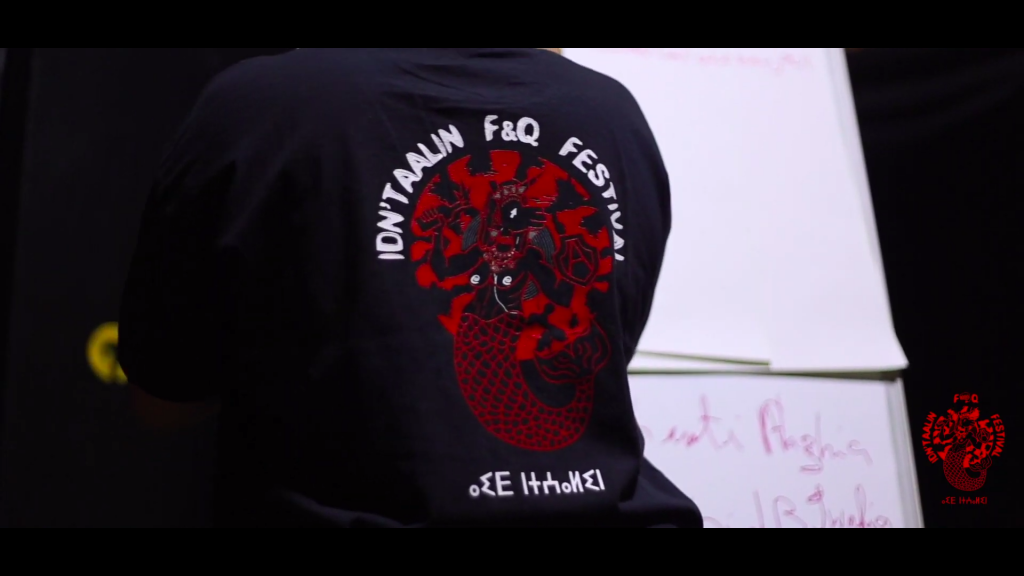
Society itself is highly homophobic/transphobic. People tend to think its a « wave » coming from the occidental country. The collective amnesia and the lack of transmission that happened here from generation to generation probably is to blame. Being queer in Morocco means being ready to fight at any moment, because at any moment we can be harassed, lynched. Being queer around here means being systematically criminalized, being considered a glitch in the system. Gender non-conforming people cannot have stable jobs, and therefore they remain poor. Less than ten years ago, some feminist activists even said that defending gender diversity was not a priority (nevertheless, the Aswat collective has been doing a good job to make things go forward). Our intersectionality comes from here : there is no feminism without gender diversity, no feminism without us, amazighs, fat people, skinny ones, the poor, the sex workers, the Africans…
Each context is different. This deconstruction cannot be done the same way as in Europe, because we don’t live the same way. Our methods have to be rooted in our moroccan context, and that’s way it’s important for us to dig a little deeper into our culture. The fact that some people see the methods used in Europe as examples is a sort of fascination for white supremacy, which we’d also like to deconstruct. There are some lessons to learn in each and every experience, but we shouldn’t juste « copy and paste ».

How do you make your programmation ? Which artistic domains are represented ?
Our choices are mainly influenced by our own backgrounds, since the objective is for everything to be done with love. Some of us like Hip-Hop culture, Metal, Punk, underground Tekno, Raï, the live arts… We sometimes struggle to find queer artists and/or women artists that are in the same state of mind as us. So the conception of the program sometimes lasts a little longer, and we limit ourselves to the artists that answer our calls. We’d rather work like that than calling very mainstream artists that make art that we don’t relate to.
Does the festival aim towards inviting foreign artists ?
One of our motivations is to have a very local scene, reuniting women and queer people, and to create a connexion between artists that come from the Maghreb.
The African local artists will remain our priority.
Have you thought about prolonging your activities (events, debates, meetings…) in Europe ?
Last year, some Moroccan friends that live un Europe organised events to support the section, and so did other European feminist collectives. So if we ever come across European collectives that share our vision of things, why not, but we won’t come get them ourselves.

You organise a lot of workshop in collaboration with local associations. Can you retrace for us the workshops that you’ve already organised ? And tell us about those to come ?
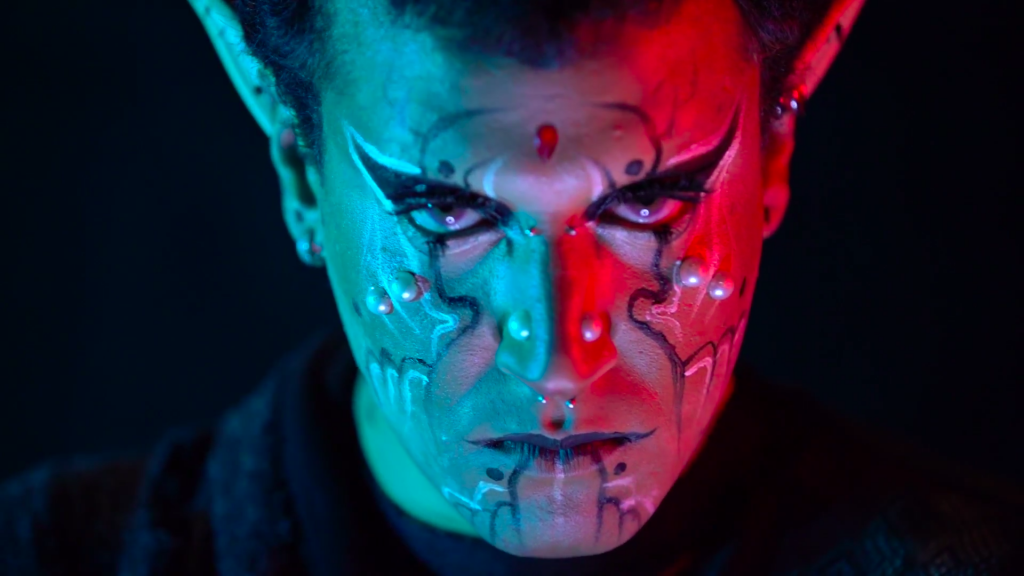
The workshops have always been an important point of the Hardzazat festival’s programmation, but they were more rooted into the arts (Graffiti workshops, dance, circus…).
After we created the queer feminist section, we tried to integrate the workshops that were specifically addressed to women. The first one we organised was in 2019. It was an initiation to handiwork to make all sorts of DIY equipment that could be used by AFAB* people while they went through the desert (urinettes made for AFAB* —« *assigned female at birth »— people to pee while standing up, or a mix similar to tear gas that they could use for autodefense…). The next year, still at Hardzazat, we decided to give more importance to the workshops inside the city. We established a listing of the local associations that worked with single women, divorced women, sex workers…, so that we could collaborate with them on some workshops. Unfortunately, we couldn’t do it in 2020 because of the sanitary situation.
During the IDN’TAALIN festival, two workshops were organised : the first one was about autodefense and the Moroccan laws regarding it. It was presented by a founding member of a feminist action group. The second one was about make-up, presented by a talentuous makeup artist. In the future, we hope to work more with local women associations, and local collectives that share our intersectional vision, such as the Aswat, Nassawiyat, Dynamique trans*, Safq (and others.).
In you presentation text, you evoke the urge to connect the different generations together. Can you explain to us what triggered this objective ?
Until now, our culture was oral, transmitted form mouth to ears. There’s been a cut between the generations. Take the concept of non-mixity for instance : it is something that has always existed in our cultures. Same thing for non-heterosexual sexualities, and non binary gender identity, but it wasn’t always expressed with the same words as now.
We can say that these are occidental words, even if they were not theorised and lived the same way here; Building bridges between the generations allow us to know our culture, to re-appropriate it, and to contribute to its transmission. Every person, no matter their age, has a right to have access to knowledge, to art, and to welcoming spaces.

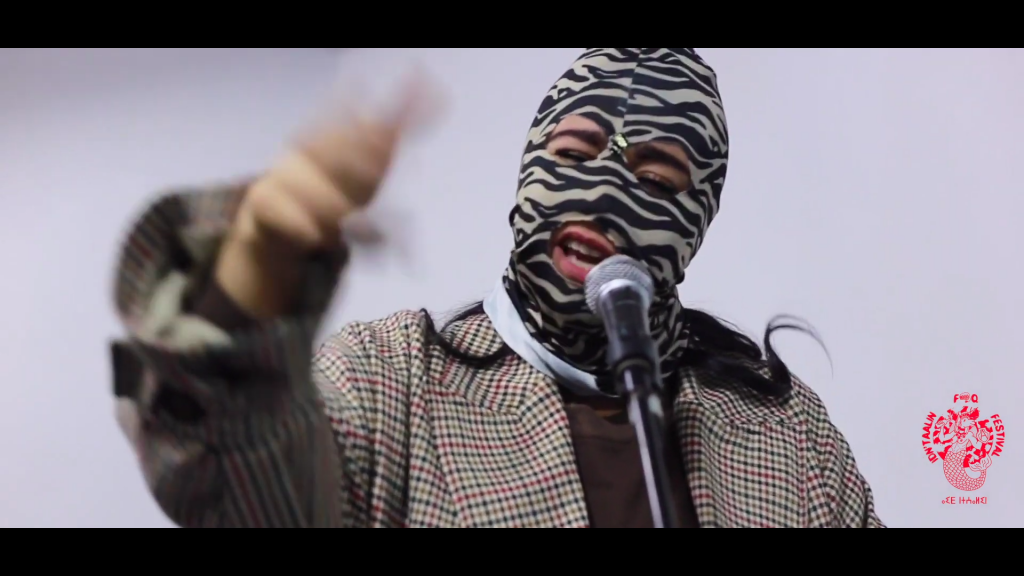
Because of Covid, your first edition took place online, with artistic residencies that gave birth to the « KIL L EGO » clip. Can you tell us more about this collaboration ? Did the artists know each other before working on this track ?
Regarding the sanitary conditions, we proposed a digital version of the festival, with music (Rap and Tekno), workshops, podcasts and a hip-hop residency.
The concept of the residency was to constitute a work team made of women, and to create a rap track. So we united female artists (from the new generation, or just starting their carrer), that only knew each other from afar. For the beatmaking part, we asked a gifted local artist. Those female rappers actually exist, but they are still very marginalized on the mainly masculine scene. The clashes between female rappers also exist. So we decided that a collaboration between these artists was necessary, in order to give another vision of female rap, one that wouldn’t feel competitive in a sexist way. This is what gave birth to « KIL L EGO ».
This is the whole point of the festival : being a converging point, a place of discussion and creation between women and queer artists coming from Africa, and more specifically from Maghreb. We wouldn’t want it to be a once-in-a-year thing, but rather a space of creation where artists can meet and create things in common in the future.

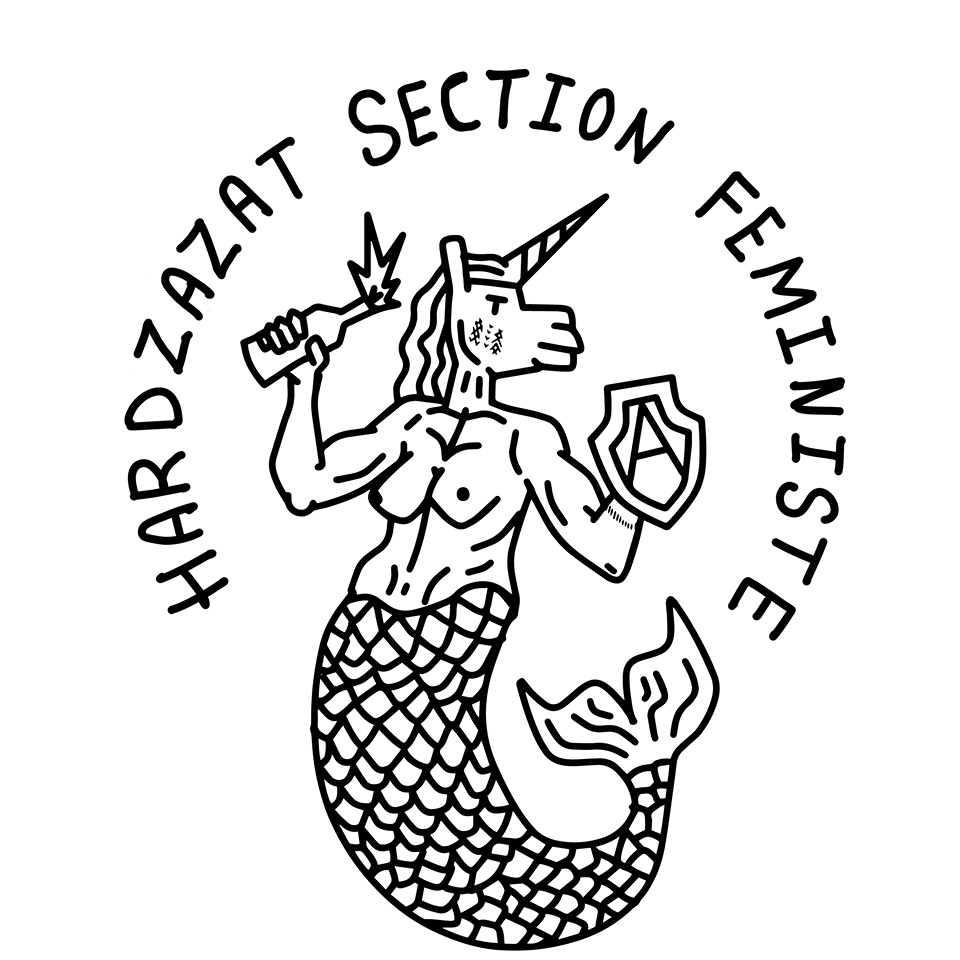
What are your objectives for the future ?
To establish a solid network of cooperation and solidarity between women/queer artists and cultural agents in Morocco and Maghreb. We want the debates that are important to us to be accessible to a maximum of women/queer people, far away from the elitist debates. We want to be able to create a time-and-space sort of thing, where woman and queer people can feel safe to move, to speak up, and to be together without having to have a guard all the time.
We want to form ourselves while creating, we want to be able to create studios for women and queer people, far from masculine domination. We want to restaure the queer/feminist side of our culture, and develop a collective production that will be accessible by copyleft to anyone who wants it, contrarily to the « copyright » vision that only reveals competition and limitations of the right to knowledge and art. This vision has nothing to do with our philosophy.
Do you have a message for our readers ?
A big thank you to the people who worked with us during the first edition without even knowing us personnally, and without waiting for a counterpart (we financed the whole edition thanks to crowfunding). Our visions alone were enough to enable a huge collaboration, and it’s wonderful. Thanks to our allies, to the people we don’t know but who believed in us, to our friends that support us from the beginning, to the people that welcomed us in our spaces. Strength and courage to every person oppressed by capitalism, barriers, sexism, homo/transphobia, racism, strength and courage to the sex workers… and to hell with every form of authority.
